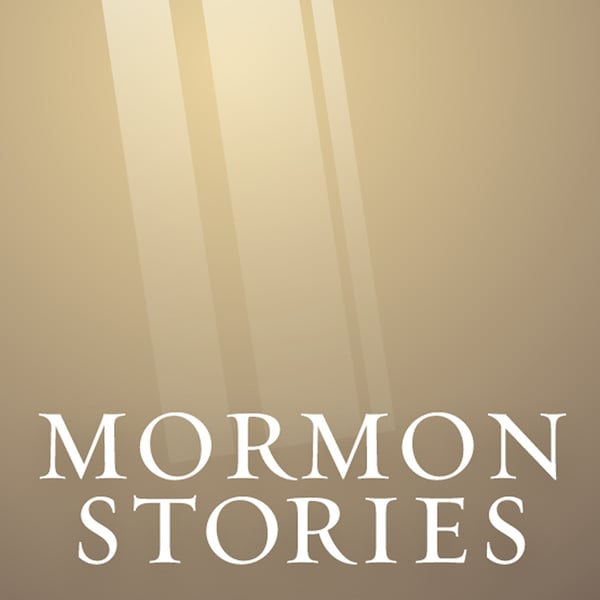660: Dr. Greg Prince Pt. 3 - How to Maintain Faith in Mormonism as an Intellectual
Mormon Stories Podcast
Dr. John Dehlin
4.6 • 5.2K Ratings
🗓️ 4 October 2016
⏱️ 92 minutes
🧾️ Download transcript
Summary
Dr. Greg Prince is best known within Mormonism as the author of three books:
- Power from on High: The Development of Mormon Priesthood
- David O. McKay and the Rise of Modern Mormonism
- Leonard Arrington and the Writing of Mormon History
In this three-part series we discuss the following:
- Part 1: Greg's early years as a Mormon in the Los Angeles area, his graduate work as a dentist and as a pathologist, and his role in developing a cure for RSV (Respiratory Syncytial Virus Infection), which has saved tens (if not hundreds) of thousands of infant lives.
- Part 2: Greg discusses the challenges of raising a son (Madison) with autism, then discusses how he developed a gospel framework that allowed him to avoid a faith crisis, which led to his entree into Mormon history authorship. We focus on his Priesthood book.
- Part 3: Greg goes deep into how he maintains faith/belief and activity in God/Christ/the LDS Church as a scientist, and after knowing so much troubling LDS history. He also lays out in detail his nuanced LDS testimony.
Transcript
Click on a timestamp to play from that location
| 0:00.0 | to support the podcast or to join the community, please become a monthly subscriber today at mormundstories.org. |
| 0:30.0 | Welcome back to another edition of mormundstories podcast. I'm your host John Dillin. We just finished two segments with Greg Prince talking about his early years as a mormund in the church. We talked about his time as a dentist, dentist, dental student working pathology, all the way culminating his developing a cure with others for RSV, a fatal illness, respiratory illness for babies infants. |
| 0:59.0 | In part two, we talked about Greg and Jalins, autistic son Madison and what that was like for them and what they're trying to do to help parents with autistic children and autistic children. |
| 1:11.0 | We talked about his early years as an intellectual adult mormund trying to understand the church better. Some friendships he had with Lester Bush and others that led to him writing a couple books on Mormon history, including one on the priesthood and then one on David on the K. |
| 1:33.0 | We decided to do because only 1 hour and 6 minutes left is we're going to push pause on our desire to talk about his book on letter to Arrington and we're going to jump right to current events in the church and then we're going to come back and give his book on letter to Arrington. |
| 1:52.0 | Hopefully another good hour to at least because it deserves that. |
| 1:56.0 | So we're going to skip Leonard Arrington for now and come back to him. |
| 2:01.0 | So Greg, what role I know that you're a modest guy and you're going to be uncomfortable with this question but you're obviously trying to play a role in the development of the LDS church and have an impact on its people. |
| 2:21.0 | Like you said with the two great lessons you learned in life, what was it do something meaningful and make it interesting or those the two things. |
| 2:29.0 | You're clearly driven by making a difference and with your books and with your involvement in dialogue and kind of behind the scenes, what do you see your role in Mormonism as a player? |
| 2:44.0 | Citizen's Ulger? What does that mean? |
| 2:47.0 | That's the title of a book by Stephen Ambrose that is an amazing account of the post-Normandy invasion. |
| 2:57.0 | It's a companion to his book D-Day and he highlights in it that the real strength of the American Army was not so much the officer corps as it was the soldiers in the trenches. |
| 3:13.0 | In the trenches who walked away from whatever their current occupation happened to be as private citizens and became soldiers. |
| 3:22.0 | And that turned out to be a decisive factor in the war. |
| 3:26.0 | They didn't set out to be career soldiers but when the call came they brought whatever tools they had and those tools were good enough. |
| 3:33.0 | So that's one metaphor for it. |
| 3:36.0 | What are you trying to do? |
| 3:38.0 | Trying to take whatever gifts I might have and fashion them into something that I can use another metaphor put on the altar. |
| 3:49.0 | Lay the gift on the altar and then it's up to them as to what they want to do with it. It's not my call. |
| 3:55.0 | And the dig one level deeper, you're choosing history, what are you trying to do with your history? |
| 4:02.0 | The only one that I chose was priesthood and that really chose me because I didn't ask to be an Elder's quorum president and it all started out from that. |
... |
Please login to see the full transcript.
Disclaimer: The podcast and artwork embedded on this page are from Dr. John Dehlin, and are the property of its owner and not affiliated with or endorsed by Tapesearch.
Generated transcripts are the property of Dr. John Dehlin and are distributed freely under the Fair Use doctrine. Transcripts generated by Tapesearch are not guaranteed to be accurate.
Copyright © Tapesearch 2025.

